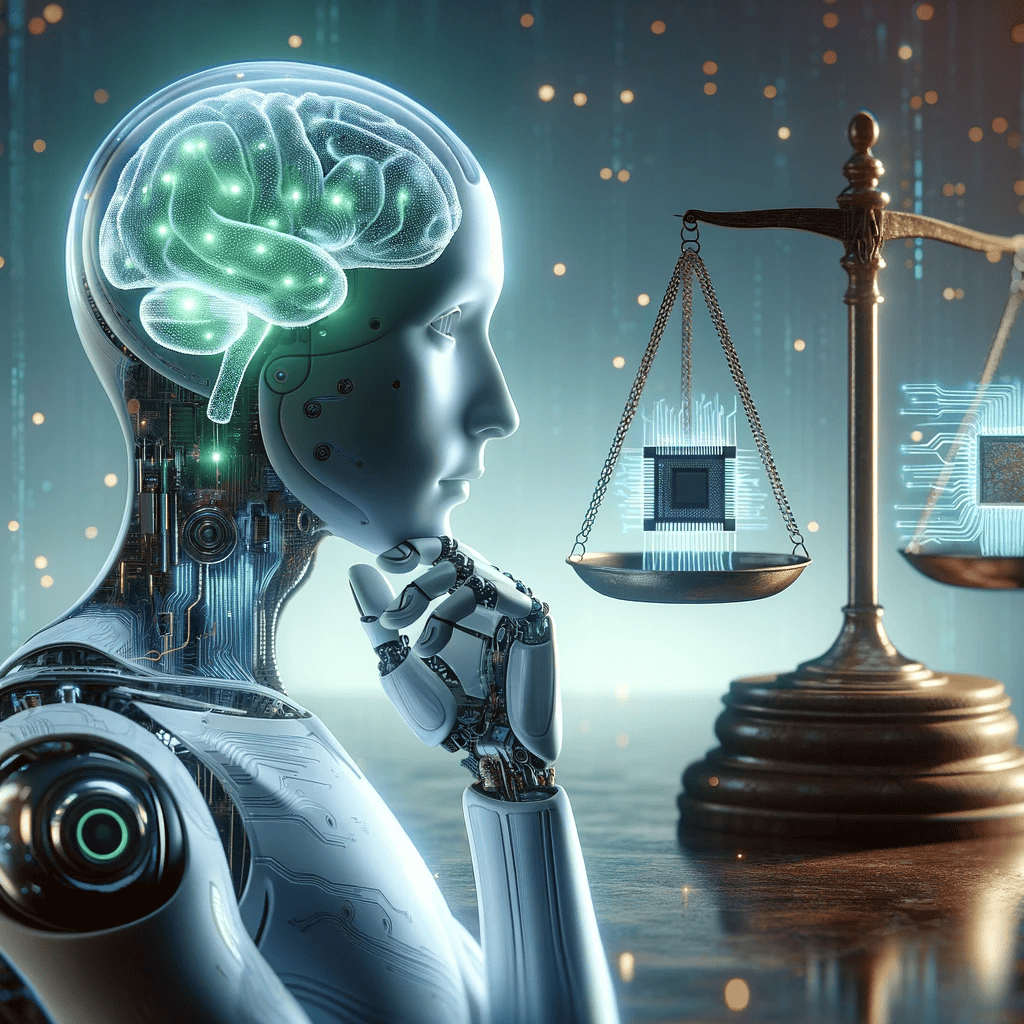Introduction: The Importance of Ethical AI
In the rapidly evolving world of artificial intelligence (AI), we cannot ignore the importance of ethics. As AI systems continue to impact various aspects of our lives, it is vital to ensure that these technologies are designed and implemented with ethical considerations in mind. In this comprehensive article, we will delve into the core principles of ethical AI, the challenges that arise, and potential solutions to foster a more responsible and fair approach to AI development and deployment.

Section 1: Defining the Principles of Ethical AI
To create a framework for ethical AI, it is crucial to establish a set of guiding principles. While these principles may vary among organizations and industries, there are several widely-accepted ethical AI concepts, which include:
1. Transparency: AI systems should be designed with clear and understandable logic, allowing users and stakeholders to know how decisions are made.
2. Accountability: Developers, implementers, and users of AI should be held accountable for the technology’s impact on individuals and society.
3. Fairness: AI systems should be unbiased and avoid perpetuating existing inequalities or creating new ones.
4. Privacy: AI should respect the privacy rights of individuals and handle personal data responsibly.
5. Safety: AI systems should be developed with a focus on minimizing harm and ensuring the well-being of all affected parties.
6. Inclusivity: AI development and deployment should be guided by the goal of benefiting all members of society, regardless of race, gender, or socioeconomic background.
Section 2: Challenges in Implementing Ethical AI
Despite the widespread recognition of these principles, implementing ethical AI is not without its challenges. Some of the most significant obstacles include:
Bias and Discrimination: AI systems can inadvertently perpetuate or exacerbate existing biases if they are trained on biased data or if algorithms are designed without considering fairness.
Privacy Concerns: The collection and use of vast amounts of data can lead to privacy breaches, identity theft, and other harmful consequences.
Lack of Transparency: Complex AI algorithms, particularly in deep learning, can be difficult to understand, which can hinder efforts to ensure transparency and accountability.
Misaligned Goals: There is a risk that AI systems may prioritize their own objectives over human values, leading to unintended and potentially harmful consequences.
Regulatory and Legal Issues: Ensuring compliance with varying regulations and legal frameworks across different jurisdictions can be a significant challenge.
Section 3: Strategies for Promoting Ethical AI
To overcome these challenges and promote the development of ethical AI, various strategies and best practices can be implemented:
Bias Detection and Mitigation: Actively identifying and addressing bias in AI systems through methods such as fairness-aware algorithms and representative data sets.
Privacy-by-Design: Integrating privacy considerations into the development process from the outset, including data minimization, anonymization, and encryption techniques.
Explainable AI: Developing AI models that are more understandable and interpretable by humans, making it easier to identify potential issues and ensure transparency.
Stakeholder Engagement: Involving various stakeholders, including end-users, ethicists, and marginalized communities, in the AI development process to ensure diverse perspectives are considered.
Regulatory Compliance: Keeping abreast of regulatory developments and proactively adhering to applicable laws and guidelines.
Section 4: The Role of Ethics Committees and AI Governance
The establishment of ethics committees and AI governance structures within organizations can help ensure that ethical considerations are consistently integrated into AI development and deployment. These bodies can:
- Develop ethical guidelines and best practices specific to the organization’s context and industry.
- Oversee the implementation of these guidelines and monitor compliance.
- Provide a forum for discussing and addressing ethical dilemmas related to AI.
- Facilitate collaboration between technical and non-technical stakeholders, fostering a more comprehensive understanding of ethical implications.
- Advocate for transparency and accountability in AI-related decisions, both within the organization and externally.
- Review and assess the organization’s AI systems on an ongoing basis to ensure continuous improvement and alignment with ethical principles.
Section 5: The Future of Ethical AI and the Need for Collaboration
As AI continues to evolve and permeate various aspects of our lives, it is essential that the principles of ethical AI are embedded in its development and deployment. This will require ongoing collaboration between developers, ethicists, policymakers, and other stakeholders. The future of ethical AI hinges on:
- Cross-Disciplinary Collaboration: Encouraging dialogue and knowledge sharing between experts in AI, ethics, law, sociology, and other relevant fields to develop a comprehensive understanding of the ethical implications of AI.
- Public-Private Partnerships: Fostering cooperation between governments, private sector organizations, and academia to address ethical challenges in AI and develop best practices and standards.
- Education and Awareness: Raising awareness among developers, users, and the general public about the importance of ethical AI and the potential consequences of unethical practices.
- International Cooperation: Promoting global collaboration and the establishment of international standards and guidelines to ensure a unified approach to ethical AI.
Conclusion: The Critical Role of Ethical AI in Shaping Our Future
In conclusion, the development of ethical AI is a vital and complex challenge that demands the attention of developers, organizations, and society as a whole. By adhering to ethical principles, addressing the challenges associated with implementing ethical AI, and fostering collaboration among various stakeholders, we can ensure that AI technologies are developed and deployed responsibly, ultimately benefiting all members of society and minimizing the potential for harm. As AI continues to reshape our world, it is up to us to ensure that these powerful technologies are guided by ethical considerations, allowing for a more just and equitable future for all.
